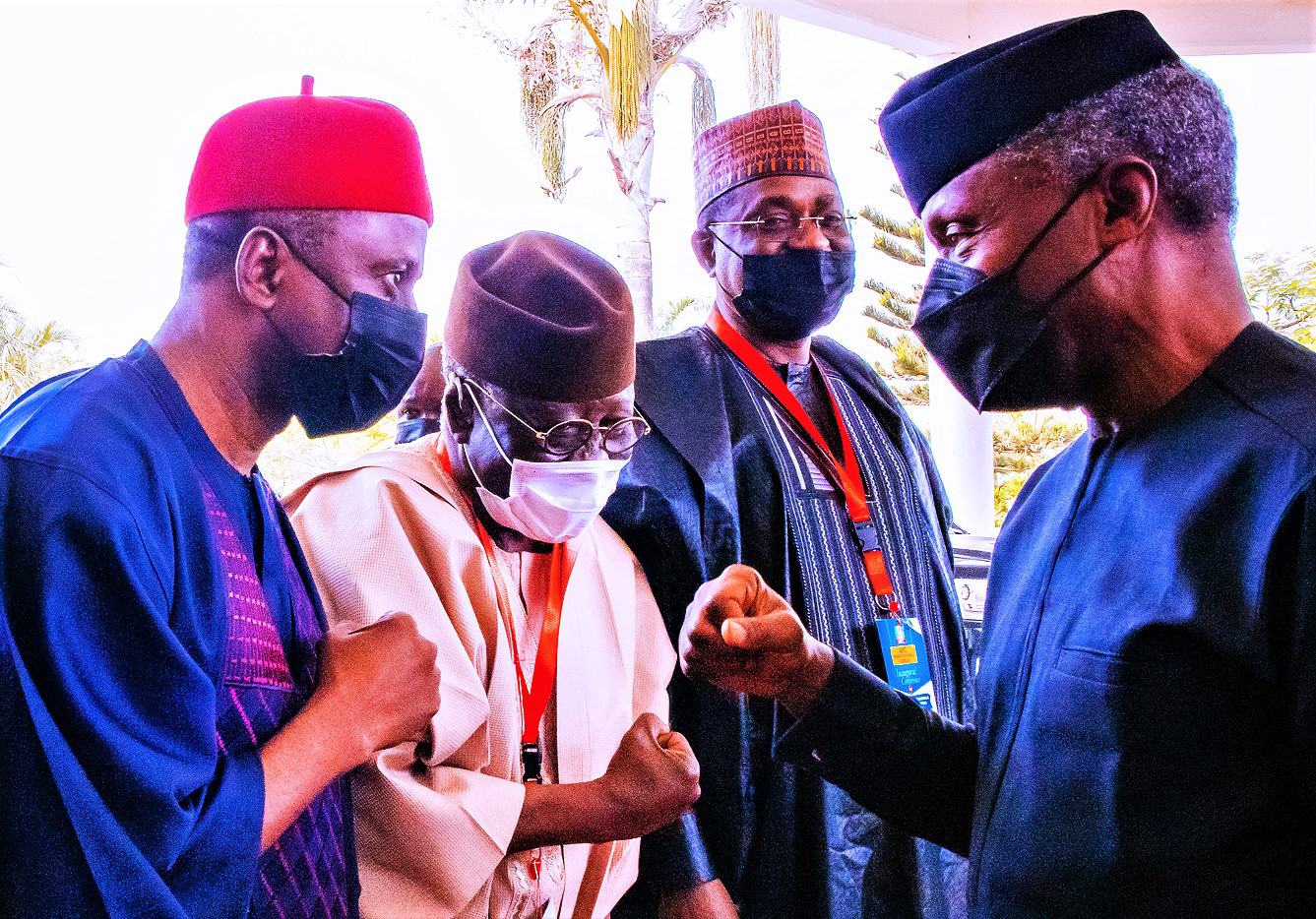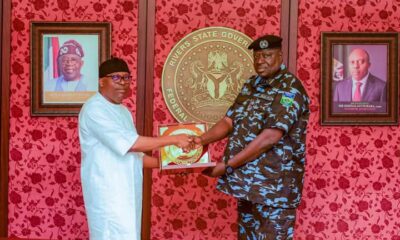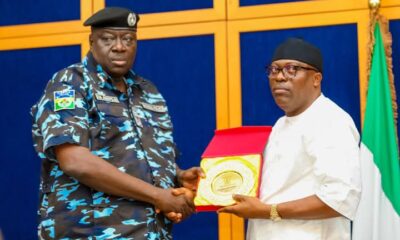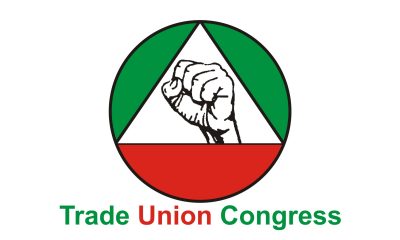Featured
Osinbajo Seeks Global Synergy Against Terrorism In Africa

Vice President Yemi Osinbajo has called on great and emerging powers to put aside rivalries and work together with Economic Community of West African States (ECOWAS) and African Union (AU), to stamp out terrorism in Africa.
Osinbajo’s spokesman, Laolu Akande, in a statement in Abuja, yesterday, said the vice president delivered a public lecture at the King’s College, London, UK.
The title of the lecture was, “Africa Can Prosper in an Increasingly Complex World”.
According to the vice president, there is restiveness on the continent which is driven in part by poverty, alienation, environmental degradation and poor governance.
“The more pressing problem today is the encroachment by franchises of global terror groups into Africa; although many African countries have acted vigorously to tackle these terrorist groups.
“There is still much more that can be done especially in partnership with the rest of the international community.
“The Sahel appears to be the worst hit; according to the 2022 Global Terrorism Index, the Sahel has become home to ‘the world’s fastest growing and most deadly terrorist groups’ and Sub Saharan Africa accounts for 48 per cent of global terrorism deaths.
“The Sahel is also said to account for half a million internally displaced persons, 1.8 million people facing food insecurity and 5.1 million people needing humanitarian assistance.
“Given the scale of the problem and the fact that the threat of terrorism anywhere on earth is a threat to the whole of humanity, I think it is time for the global community to treat the menace of terrorism in the Sahel as a common challenge.
“This is one area in which the great powers and emerging powers can put aside rivalries and work together with ECOWAS and the African Union on an initiative to stamp out terrorism in Africa especially in the Sahel.”
Osinbajo said that Africa had been and remained a force for global good.
He made reference to the agreement in 1963 when African countries barely out from colonial rule agreed to respect colonially inherited boundaries.
The vice president said the agreement was a big deal as most wars in the world in previous centuries were often linked to disagreements about boundaries.
“ Following from the respect for colonially inherited boundaries, Africa has also shown outstandingly good example in using its regional integration arrangements to promote peace and security on one hand and trade and industry on the other.
“African regional organisations have taken responsibility for maintenance of peace and security in the continent and its sub-regions.
“Notable in this regard is the strong resistance to unconstitutional changes of government at the African Union and also in regional economic groupings.
“ECOWAS for instance has sanctioned countries like Burkina Faso, Guinea and Mali where soldiers have seized power by coups d’etat.
“Such sanctions include suspension of memberships, travel bans and freezes on financial credits amongst other things.”
Osinbajo commended the AU which has backed up ECOWAS actions and has also suspended the membership of these countries.
He also acknowledged that the U.S. Government issued a statement of specific support for ECOWAS sanctions in Guinea.
Osinbajo praised efforts towards economic development in the continent as Africa had shown outstandingly good example through the establishment of the African Continental Free Trade Area(AfCFTA).
He expressed optimism that AfCFTA would overcome the constraints of Africa’s small, fragmented markets and its impact on commerce within the continent both in goods and services will be profound.
According to the vice president, another investment which has the capacity to act as a game-changer for Africa in the current complex world is digitalisation.
“I think there is a strong conviction that digitalisation offers the best opportunity of leap-frogging for Africa.
“Digital technologies are being deployed across Africa to provide solutions in agriculture, education, Fintech and healthcare delivery.
“ It is also being deployed in logistics and transport and have the potential to be used for smart housing solutions and smart power grids.
“The story of mobile telephony which has provided the platform for the use of digital technologies in daily lives in Africa is one such example.
“ Due to mobile telephony, Africa is ahead of other parts of the world in terms of Fintech and payments solutions; Africa accounts for about half of the world’s mobile money accounts,’’ he said.
He said that more African countries were using AI-enabled surveillance technologies for facial recognition to monitor and respond to crime.
The vice president’s lecture also touched on climate change crisis, the Russian-Ukrainian war, among other issues.
Earlier, Prof. Rachel Mills, the Senior Vice President (Academics) at the King’s College, said the college and especially the African Leadership Centre (ALC) had long standing collaboration with African institutions.
She said that the college, had over the years, demonstrated its commitment to offering quality education to young talented Africans through its partnership programmes with some African Universities.
Mills underscored the importance of the public lecture delivered by the vice president as an opportunity to reflect on Nigeria as a regional leader in economic, political and social terms.
Featured
Tinubu Pledges Peace, Justice, Development in Ogoniland….Fubara Lauds President on Peace Talks

President Bola Tinubu has assured the people of Ogoniland that his administration will prioritize peace, justice, and sustainable development in the region.
The President said this during a closed-door meeting with the leaders of Ogoniland led by the Governor of Rivers State, Siminalayi Fubara, at the Council Chamber of the State House, Abuja, yesterday.
The Special Adviser to the President on Information and Strategy, Bayo Onanuga, disclosed details of the meeting in a statement titled ‘President Tinubu pledges peace, justice, development in Ogoniland.’
At the meeting, Tinubu called for unity and reconciliation, urging the Ogoni people to set aside historical grievances and work together to achieve peace, development, and a clean environment.“
We must work together with mutual trust. Go back home, do more consultations, and embrace others.“We must make this trip worthwhile by bringing peace, development, and a clean environment back to Ogoniland,” Tinubu said.
“We cannot in any way rewrite history, but we can correct some anomalies of the past going forward. We cannot heal the wounds if we continue to be angry,” he added.
Tinubu directed the National Security Adviser, Nuhu Ribadu, to coordinate the negotiations as he called for inclusive consultation and mutual understanding.
The President commended the delegation for embracing the Federal Government-led dialogue and emphasised the need for collaboration, trust, and inclusiveness to resolve lingering issues in the region.
He asked ministers, the NNPCL, and the Rivers State Government to cooperate with the Office of the National Security Adviser to achieve this mandate.Tinubu told his guests, “It is a great honour for me to have this meeting, which is an opportunity to dialogue with the people of Ogoniland.
“It has been many years since your children and myself partnered to resist military dictatorship in this country. No one dreamt I would be in this chair as President, but we thank God.
“Many of your sons present here were my friends and co-travellers in the streets of Nigeria, Europe, and America. I know what to do in memory of our beloved ones so that their sacrifices will not be in vain,.
”Fubara thanked the President for his support of the Ogoni people and for welcoming an all-inclusive representation of the people to the Presidential Villa.
He said the meeting was a follow-up to an assignment the President gave him through the National Security Adviser.
Emphasising the importance of resuming oil operations in Ogoniland, the governor pledged the delegation’s commitment to adhering to the President’s instructions and providing the necessary support to achieve the government’s objectives.“
What we are doing here today is to concretise the love and respect we have for the President for being behind this meeting and for him to tell us to go back and continue the consultations with a timeline so that the resumption of oil production in Ogoniland will commence,” Fubara said.
On his part, Ribadu commended the Ogoni people for their trust in President Tinubu and for embracing dialogue as a path to meaningful progress and enduring solutions.
“Guided by Mr. President’s vision that every voice is heard and every interest is considered, my office, the DSS, the government of Rivers State and the Minister of FCT embarked on a diligent and consultative process to assemble this delegation,” Ribadu said.
He noted that the over 50-member delegation that met with the President reflected the rich diversity of Ogoni society, representing various constituencies, interests, and viewpoints.
“The presence of this delegation is a testament to the Ogoni people’s readiness to engage constructively in the pursuit of peace, justice, and sustainable development,” he noted.
A representative of the Ogoni leadership, King Festus Babari Bagia Gberesaako XIII, the Gberemene of Gokana Kingdom, expressed the community leaders’ willingness to engage in the process of finding lasting solutions to the lingering challenges in Ogoniland.
Meanwhile, the Minister of Environment, Balarabe Lawal, said the Federal Government aimed to conclude the Ogoni cleanup within three to four years, with half of the project completed.
The delegation included Senators Lee Maeba, Magnus Abe, Olaka Nwogu, Victor Giadom, Kenneth Kobani, Monsignor Pius Kii, Leedom Mitee, Senators Bennett Birabi, Barry Mpigi, Prof. B. Fakae, among others.Also in attendance were the National Security Adviser, Nuhu Ribadu; Chief of Staff to the President, Femi Gbajabiamila; Minister of Information and National Orientation, Idris Mohammed; Minister of Regional Development, Abubakar Momoh; Minister of Environment, Balarabe Abbas; and the Group Chief Executive Officer of the Nigerian National Petroleum Company Limited, Mele Kyari.
Featured
Nigeria, S/Arabia, Deepen Ties On Solid Mineral Exploration

Nigeria and Saudi Arabia have renewed plans to build the capacity of their geological agencies by leveraging the breakthroughs recorded by Saudi firms in mineral exploration.
Segun Tomori, the Special Assistant on Media to the Minister of Solid Minerals Development, Dele Alake, made this known in a statement in Abuja, yesterday.
He said that this was on the sidelines of the Future Minerals Forum (FMF) in Riyadh, Saudi Arabia,
Tomori said the decision was taken at a closed-door meeting between a delegation from Saudi Arabia led by its Minister of Mining, Bandar Al-Khorayef, and Nigeria’s delegation led by Alake.
He said Alake proposed for both countries to collaborate on areas of economic advantage, urging partnerships based on the sector’s value chain.
Citing Saudi Arabia’s renowned gold market as an example, Alake said Nigeria’s gold refineries could access the Saudi market under protective clauses, guaranteeing expansion opportunities for both economies.
On his part, the Saudi Minister disclosed that its government and the private sector were working together to introduce new technologies for mineral exploration.
He emphasised that new products were showcased at the minerals forum conference to foster business partnerships and raise awareness of their applications.
Alake also met with officials of the Saudi Chamber of Commerce, where he canvassed their investment in Nigeria’s mining sector.
He urged them to leverage the large deposits of lithium and iron ore, which were being processed in Nigeria in line with the value addition policy.
To de-risk their investment, the minister promised to direct the Nigerian Geological Survey Agency, to provide relevant data on their minerals of interest.
According to the minister, the global transition toward electric machines, which use lithium batteries, has positioned Nigeria as a critical supplier of minerals
Tomori quoted him saying, “Partnership with Saudi investors will encourage the export of finished industrial inputs.”
Acknowledging the investment in steel production in Saudi Arabia, the minister cited examples of companies processing iron ore to steel in Nigeria as precedents that could be replicated.
He said that Nigeria was committed to creating an enabling environment for investors to ensure smooth operations in mining projects.
The minister said they included the establishment of laboratories for the separation and analysis of mineral samples, among other facilities.
“Nigeria has the best certified laboratories for minerals in West Africa,” he said.
The Tide source reports that the 2025 Future Minerals Forum (FMF) with the theme: “Year of Impact,’ was held from Jan. 14 to 16 in Riyadh, Saudi Arabia.
The meeting was to bolster international collaboration in producing the critical minerals essential for the global energy transition.
Featured
FG, States, Local Govts Share N1.42trn In January

The Federation Account Allocation Committee (FAAC) has disbursed a total sum of N 1.424 trillion to federal, state and local governments. The total amount is derived from the federation account revenue generated in December 2024.
The disbursement, which was made at the January 2025 Federation Account Allocation Committee (FAAC) meeting held in Abuja, last Friday comprising distributable statutory revenue of N386.124 billion, distributable Value Added Tax (VAT) revenue of N604.872 billion, Electronic Money Transfer Levy (EMTL) revenue of N31.211 billion and Exchange Difference revenue of N402.714 billion.
According to a communiqué issued by the committee, the total gross revenue of N2.310 trillion was available in the month of December 2024, while the total deduction for cost of collection was N84.780 billion, total transfers, interventions and refunds was N801.175 billion.
According to the communiqué, gross statutory revenue of N1.226 trillion was received for the month of December 2024. This was lower than the sum of N1.827 trillion received in the month of November 2024 by N600.988 billion.
Also, the gross revenue of N649.561 billion was available from the Value Added Tax (VAT) in December 2024. This was higher than the N628.973 billion available in the month of November 2024 by N20.588 billion.
The communiqué stated that from the N1.424 trillion total distributable revenue, the federal government received total sum of N451.193 billion while state governments received total sum of N498.498 billion.
The local government councils received total sum of N361.754 billion and a total sum of N113.477 billion (13 percent of mineral revenue) was shared to the benefiting states as derivation revenue.
On the N386.124 billion distributable statutory revenue, the Federal Government received N167.690 billion and the state governments received N85.055 billion while local government councils received N65.574 billion. The sum of N67.806 billion (13 percent of mineral revenue) was shared to the benefiting States as derivation revenue.
“From the N604.872 billion distributable Value Added Tax (VAT) revenue, the Federal Government received N90.731 billion, the State Governments received N302.436 billion and the Local Government Councils received N211.705 billion.
“A total sum of N4.682 billion was received by the Federal Government from the N31.211 billion Electronic Money Transfer Levy (EMTL). The State Governments received N15.605 billion and the Local Government Councils received N10.924 billion.
“From the N402.714 billion Exchange Difference revenue, the communiqué stated that the Federal Government received N188.090 billion and the State Governments received N95.402 billion. The Local Government Councils received N73.551 billion, while the sum of N45.671 billion (13% of mineral revenue) was shared to the benefiting States as derivation revenue,” the communique stated.










